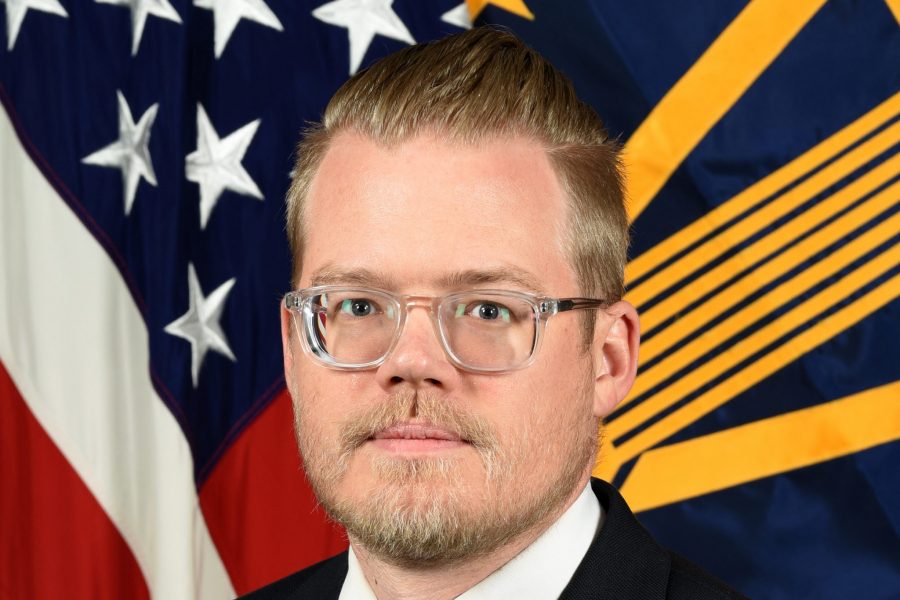The Pentagon on Oct. 29 added a new top leadership position to oversee space-related combat policy across the department, as required by lawmakers in the 2020 defense policy bill.
The assistant secretary of defense for space policy will report to the undersecretary of Defense for Policy, and is responsible for “interagency coordination and international engagement on space policy and strategy,” the Defense Department said in an Oct. 30 release.
“The establishment of the Assistant Secretary of Defense for Space Policy is a change of the civilian oversight of the space enterprise that aligns with the establishment of the U.S. Space Force and U.S. Space Command,” Deputy Defense Secretary David L. Norquist said.
The Space Force is a new military service that organizes, trains, and equips military personnel to operate satellites and radars and launch rockets, among other missions. SPACECOM is the combatant command created to handle daily operations with those people and assets. Both were created last year.
Justin T. Johnson will perform the duties of the new assistant secretary job until a permanent official is nominated by the President and confirmed by the Senate. It’s his second promotion since August, when he took over as acting deputy assistant secretary of defense for space. He was never formally appointed to that deputy assistant post.
Gregory Pejic will move into that job as Johnson moves up, and will hold it until someone is formally appointed to do the work. Pejic has worked as a special assistant to the Pentagon comptroller, according to ProPublica.
The high-level shuffle comes as the Space Force prepares to ask Soldiers, Sailors, and Marines to transfer into the new service and as the Pentagon shapes a new space acquisition enterprise. Johnson and Pejic will be key voices in those decisions and more.
The 2020 National Defense Authorization Act stipulates that the assistant secretary will sit on the Space Force’s new acquisition council alongside an assistant Air Force secretary for space acquisition and integration, the undersecretary of the Air Force, National Reconnaissance Office director, Space Force Chief of Space Operations, and the head of U.S. Space Command, Air Force Magazine previously reported.
